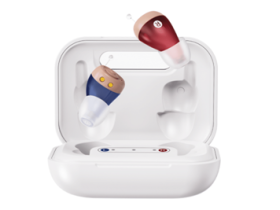Detoxification is the process of removing harmful substances from the body. It is a critical first step in the recovery process for individuals struggling with addiction. However, learn more detox can also be a challenging and uncomfortable experience, as the body may experience withdrawal symptoms as it adjusts to the absence of the substance.
Here are some tips for managing withdrawal symptoms during detox:
Seek Medical Supervision:
Withdrawal symptoms can be unpredictable and potentially dangerous. It is essential to seek medical supervision during detox, especially for severe addiction. Medical professionals can provide medications and monitoring to manage withdrawal symptoms safely.
Stay Hydrated:
During detox, it is essential to stay hydrated to prevent dehydration and support the body’s natural detoxification process. Drinking water, electrolyte drinks, or herbal teas can help alleviate some withdrawal symptoms.
Rest and Sleep:
Fatigue is a common withdrawal symptom during detox. Getting adequate rest and sleep can help manage symptoms such as headaches, irritability, and anxiety. Creating a comfortable sleeping environment and sticking to a regular sleep schedule can help support better sleep.
Exercise:
Exercise can be beneficial in managing withdrawal symptoms such as depression and anxiety. Light exercise, such as walking or yoga, can help reduce stress, improve mood, and promote better sleep.
Eat Nutritious Foods:
Eating a healthy diet can help support the body’s natural detoxification process and alleviate some withdrawal symptoms. Foods such as fruits, vegetables, lean proteins, and whole grains can help provide essential nutrients to the body.
Seek Emotional Support:
Detox can be an emotional and challenging experience. Seeking emotional support from family, friends, or a therapist can help manage feelings of anxiety, depression, or loneliness.
Practice Relaxation Techniques:
Relaxation techniques, such as deep breathing, meditation, or mindfulness, can help manage withdrawal symptoms such as anxiety, insomnia, and muscle tension.
Avoid Triggers:
During detox, it is essential to avoid triggers that may lead to relapse. Triggers can be people, places, or situations that remind you of substance use. Identifying and avoiding triggers can help reduce the risk of relapse during detox.
In conclusion, managing withdrawal symptoms during detox can be challenging, but with the right strategies and support, it can be a manageable and successful process. Seeking medical supervision, staying hydrated, getting adequate rest and sleep, exercising, eating nutritious foods, seeking emotional support, practising relaxation techniques, and avoiding triggers can all help alleviate some of the discomfort of withdrawal and support a successful detox and recovery journey.








Leave a Reply